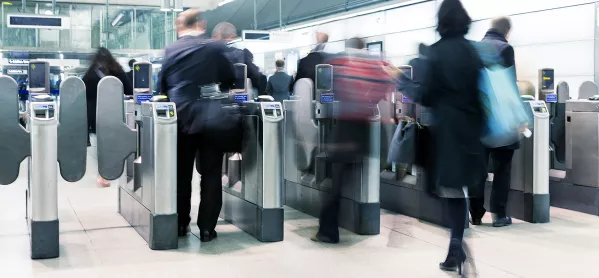ITT: DfE maths bursary plan ‘cut teacher numbers’

A plan to boost maths teacher numbers through a phased bursary scheme actually led to a reduction of teachers in the system because it hurt recruitment more than it improved retention, new analysis suggests.
The phased maths bursary (PMB) pilot scheme, introduced in 2019, increased the overall financial incentives offered to maths teachers with a reduced initial bursary but two new early career payments (ECP) in their third and fifth years.
An analysis of the impact of the scheme, carried out by CFE Research and FFT Education Datalab, has now been published by the Department for Education.
It found that the pilot led to 275 fewer maths teachers being recruited and, at most, 94 more being retained.
- Teacher training: Why ITT bursaries are not a silver bullet
- Background: DfE announces £196 million to recruit more teachers
- Staff shortages: Competitive pay “crucial” for teacher supply, warns OECD
The report suggests that moving from a bursary of £25,000 to a smaller £20,000 bursary reduced recruitment on to maths initial teacher training by between 10 and 15 per cent.
Analysts estimated that 275 fewer maths teachers entered state schools in the 2019-20 academic year, based on a model that compared changes in recruitment in maths with other subjects.
The report says that most of this reduction was linked to deferring (or phasing) some of the bursary payment.
The analysis notes that the DfE had recognised that reducing the value of the ITT bursary or scholarship would reduce initial recruitment.
However, the plan was that the introduction of ECPs would increase retention “enough to more than offset this decline in recruitment, thus leading to more maths teachers in the workforce overall”.
Tackling the maths teacher shortage
Earlier this year prime minister Rishi Sunak set out plans for all students to study maths up to the age of 18. However, he has acknowledged that more maths teachers will be needed to achieve this
In October he set out a plan for A levels and T levels to be replaced by a new Advanced British Standard qualification, which would involve pupils studying English and maths up to the age of 18.
Research published at the end of last year indicated that almost half of secondary schools were using non-specialist teachers for maths lessons.
Under the phased maths bursary scheme, ECPs of £5,000 were given to maths teachers in the third and fifth years of their career, increasing to £7,500 in “uplift areas” - 39 places identified by the DfE as having a high need for new teachers.
The analysis suggests that the pilot scheme reduced the probability of losing teachers by 37 per cent in the year the first ECP of £5,000 was paid (2021-22).
This, the report says, equated to 47 maths teachers being retained who would otherwise have left teaching in state schools.
It says that 80 teachers left the profession between 2020-21 and 2021-22, compared with a projection that 127 would have left in the absence of the first ECP.
The impact of higher retention payments in uplift areas was greater. Here, the £7,500 ECP was said to have reduced attrition by 58 per cent.
However, the report warns “that the sample used to estimate this value is small, so caution is needed interpreting the results”.
Net reduction in teachers
The report adds that data is not yet available to evaluate the impact of the second career payment.
It concludes that, overall, the phased maths bursary has led to a reduction in the number of maths teachers in the system.
“Even if we assume that the payments will have the same effect for teachers later in their career, the number of additional teachers retained by this second payment will be less than 275 due to the eligible cohort of maths teachers being smaller by this point. The two ECPs are therefore likely to retain at most 94 (47x2) teachers.
“Since this is lower than the 275 fewer teachers entering the profession in the 2019-20 academic year, the PMB pilot is therefore likely to result in a net reduction of teachers within the 2018-19 cohort by the end of the policy period.”
In 2019 the DfE announced that maths, chemistry, physics and modern foreign languages teachers would be receiving bursaries followed by ECPs.
You need a Tes subscription to read this article
Subscribe now to read this article and get other subscriber-only content:
- Unlimited access to all Tes magazine content
- Exclusive subscriber-only stories
- Award-winning email newsletters
Already a subscriber? Log in
You need a subscription to read this article
Subscribe now to read this article and get other subscriber-only content, including:
- Unlimited access to all Tes magazine content
- Exclusive subscriber-only stories
- Award-winning email newsletters
topics in this article



